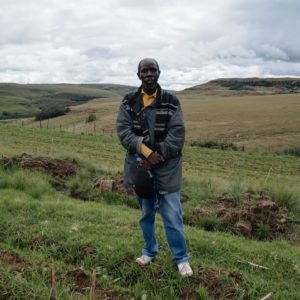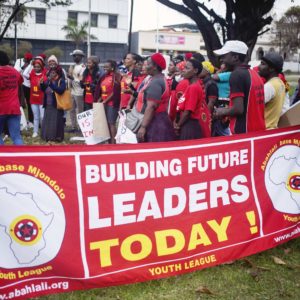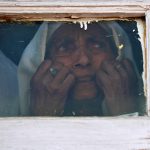Alarm over arrest of Kashmiri rights defender
India’s detention of an award-winning human rights activist, which has caused a global outcry, comes amid a military crackdown on dissidents in the contested territory.
Author:
2 December 2021

Indian authorities have arrested Khurram Parvez, a key human rights defender in Jammu and Kashmir, the troubled Himalayan territory where a crackdown on dissidents has resulted in a spike in rights violations and a surge in violence.
Khurram, 44, was arrested at his Srinagar home after officials from the National Investigation Agency, India’s counterterrorist task force, raided his residence and office on 22 November. The agency later said the raids were carried out in connection with a case involving terrorism and terrorist financing, criminal conspiracy, and waging war against the government of India.
It confiscated Khurram’s cellphone, laptop, books and documents as well as his wife’s electronics. The authorities also raided the Jammu and Kashmir Coalition of Civil Society, a federation of human rights groups and individuals operating in Kashmir, which Khurram coordinates. For years, Khurram has produced important reports on human rights abuses for the coalition.
Related article:
In 1996, Khurram created a helpline while at university to provide peer counselling to students affected by the conflict in the region. Later, he became involved in the research work of the Srinagar-based Association of Parents of Disappeared Persons. He is also the chairperson of the Philippines-based Asian Federation Against Involuntary Disappearances.
Global organisations such as the United Nations and Amnesty International have praised his dedication to monitoring and investigating human rights abuses perpetrated by the Indian armed forces against Kashmiris over the past three decades. This includes his path-breaking work in unearthing mass graves in the region, helping families of victims of disappearances and successfully advocating for landmines to be banned in the region.
Relentless harassment
Khurram had a narrow escape in 2004 while travelling in rural Kashmir to monitor the state assembly elections. The vehicle carrying him and his team was targeted by an improvised explosive device that killed his colleague, Aasiya Jeelani, while he had to have one of his legs amputated. Two years later, Khurram was awarded the Reebok International Human Rights Award for his work, which includes being a vocal critic of how the Indian state kills and kidnaps civilians, stifles dissent, uses excessive force, arbitrarily detains people and uses pellet guns against unarmed Kashmiris. Many human rights bodies and advocacy groups rely on Khurram’s work in Kashmir – which makes him a target of scrutiny by Indian security agencies.
In 2016, Khurram was not allowed to board a flight to Geneva to attend a UN Human Rights Council session. Authorities feared he would “internationalise the rights violations in Kashmir and castigate Indian policies”. He was also detained for about 76 days that year during a summer-long mass uprising in the region in which the deaths of as many as 100 unarmed civilians were reported. He was booked under the controversial Public Safety Act, a law that allows the detention of individuals without trial, and only released after an international outcry.
The global community is outraged by his latest arrest. Mary Lawlor, UN special rapporteur on human rights defenders, tweeted: “I’m hearing disturbing reports that Khurram Parvez was arrested today … in Kashmir and is at risk of being charged by authorities in India with terrorism-related crimes. He’s not a terrorist, he’s a human rights defender.” The World Organisation Again Torture, a Geneva-based non-profit, tweeted: “We are deeply concerned about the high risk of torture while in custody. We call for his immediate release.”
Related article:
In a statement, Norway-based human rights group the Rafto Foundation said Khurram and the coalition have always espoused non-violence and acted “impeccably” as human rights defenders to earn the “highest reputation both within Kashmir and from international institutions”.
Not many are convinced of the National Investigation Agency’s claims that Khurram is involved in anything illegal. Rather, his arrest seems to be part of a larger crackdown by the right-wing Hindu nationalist Bharatiya Janata Party government to silence critics.
The People’s Union for Civil Liberties said it believed the arrest was another attempt to “silence peaceful, non-violent dissenters” and an instance of the “brutalising state machinery” being used against civil rights defenders. Amnesty International said Khurram’s arrest “is yet another example of how anti-terror laws are being misused to criminalise human rights work and stifle dissent in India”.
Widening crackdown
Early in November, human rights groups in Kashmir criticised Indian forces for killing three civilians and an alleged militant during an alleged counter-insurgency operation in Srinagar. Police initially claimed that two militants and their associates were killed in a shoot-out. Their bodies were secretly buried in a remote graveyard without their families present. But the families of the men have accused Indian forces of using their kin as human shields. The bodies of two of the victims were later exhumed and returned to their families after protests. The case sparked fury across the region.
India’s military crackdown in Kashmir has become more severe after Delhi revoked the disputed territory’s special status, invalidated its independent constitution, divided the province into two federal regions, and eliminated inherited land and job safeguards in August 2019. Prime Minister Narendra Modi has also brought in a slew of new laws that critics and many Kashmiris fear will change the region’s demographics.
Related article:
In October, suspected militants killed 28 civilians, the majority of whom were local Muslims. People from local Hindu and Sikh communities and migrant workers were also targeted. Indian authorities claimed the assassinations were carried out by the Resistance Front, which they describe as a front for Pakistan-based militant group Lashkar-e-Taiba. The Resistance Front, which calls itself “the indigenous resistance of Kashmir”, arose in the aftermath of Kashmir’s 2019 reconfiguration. Since then, it has carried out attacks in the region, claiming the individuals were killed for being “government informants”.
Delhi has responded by boosting its military presence in the valley. Authorities also put up closed-circuit television cameras, apparently fitted with facial recognition technology. In October, the police arrested more than 900 civilians in a search operation. They were primarily from Srinagar, where the killings occurred, and included Muslim leaders, teachers and individuals regarded as “anti-India” activists and “sympathisers” of Kashmiri independence groups.On 24 November, the police claimed to have killed three militants belonging to the Resistance Front during a brief encounter, but local media quoting eyewitnesses claimed state forces pulled three “unarmed boys” from a car and shot them.



